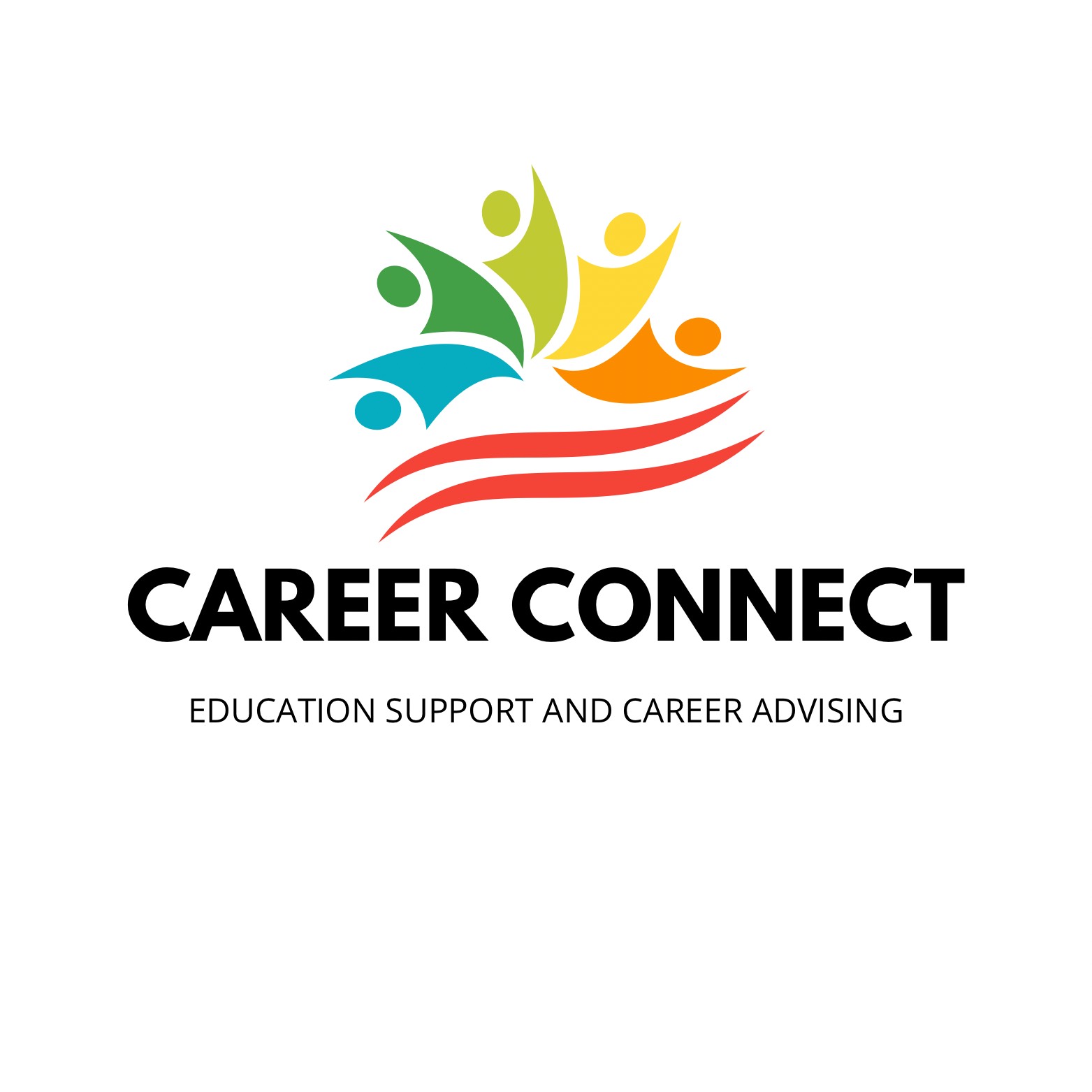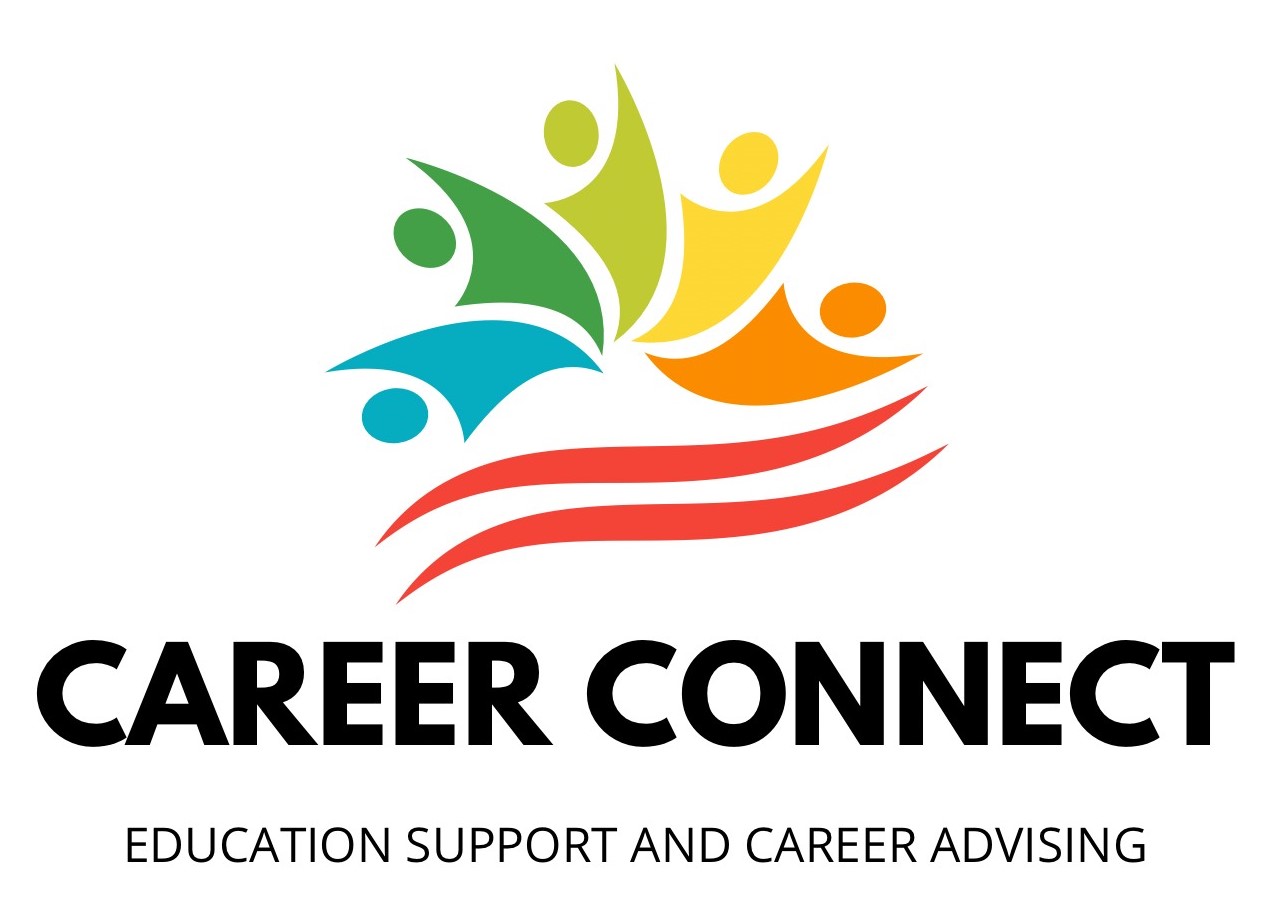Recognition To Prior Learning (RPL)
Start Your International Education Journey With Careers Connect
Recognition Of Prior Learning (RPL) About
RPL is a process that assesses and validates the skills, knowledge, and experience that you have acquired through non-formal and informal learning. This can include things like work experience, volunteer work, online courses, and self-study.
RPL can be used to get credit for courses or programs, to get a job, or to apply for a visa or immigration.
Recognition of Prior Learning (RPL) is a formalized procedure designed to assess and authenticate the competencies, expertise, and practical insights acquired through non-formal and informal learning pathways. These avenues encompass a spectrum of activities, including but not limited to professional work experience, volunteer engagements, online coursework, and self-directed study.
The utilization of RPL serves multifaceted purposes, such as earning credit for specific courses or programs, enhancing employ-ability prospects, or facilitating visa and immigration application processes.

WHY
CAREERS CONNECT
At Careers Connect, our Recognition of Prior Learning (RPL) service is thoughtfully structured to facilitate clients in showcasing their preexisting competencies while attaining official acknowledgment for their skill sets. Our dedicated team engages in close collaboration with each client, meticulously evaluating their knowledge and experience to ascertain its alignment with their desired qualifications. Upon confirming a congruence, we guide clients through the process of gathering and systematizing the requisite evidence, enabling them to compile a comprehensive application for submission to the pertinent regulatory authority.
Benefiting from the expert guidance of our experienced consultants, clients receive personalized support and mentorship throughout the entirety of their RPL journey. Our unwavering commitment is to aid individuals in securing the due recognition for their proficiencies and knowledge. Over time, our RPL service has effectively empowered countless clients, propelling them towards the realization of their professional aspirations.
If you are enthusiastic about gaining official acknowledgment for your existing competencies, we invite you to contact us promptly. Discover more about our comprehensive RPL services and how we can assist you in not only fulfilling your aspirations but also advancing your professional trajectory.
Why is RPL important?
RPL can be important for a number of reasons. It can:
- Help you to advance your career by giving you the skills and knowledge that you need to get a job or promotion.
- Save you time and money by allowing you to get credit for courses or programs that you have already completed.
- Help you to immigrate to another country by providing evidence of your skills and experience.
Recognition of Prior Learning (RPL) holds significant importance for various compelling reasons, as it:
- Facilitates Career Advancement: RPL equips individuals with the essential skills and knowledge required to excel in their careers, facilitating job attainment and professional growth.
- Optimizes Resource Allocation: By affording individuals the opportunity to gain credit for previously completed courses or programs, RPL conserves both time and financial resources.
- Supports Immigration Endeavors: RPL serves as a crucial tool for those seeking immigration to another country, substantiating their qualifications and expertise through tangible evidence of skills and experience.
How does RPL work?
The process of RPL can vary depending on the organization that is offering it. However, the general steps involved are:
- Initiate the process: You will need to contact the organization that is offering RPL and find out what their requirements are.
- Gather evidence: You will need to gather evidence of your skills and experience. This can include things like certificates, transcripts, letters of reference, and portfolios.
- Submit your application: You will need to submit your application, along with your evidence, to the organization.
- Be assessed: You will be assessed by an assessor. This may involve an interview, a written test, or a practical assessment.
- Receive your results: You will receive your results from the organization.
In the Recognition of Prior Learning (RPL) Degree assessment process in Australia, your skills undergo a rigorous evaluation against industry standards. This assessment is carried out by proficient RPL experts with extensive experience in the Australian RPL system. The assessment procedure encompasses various elements, including:
- Performance Evaluation: Candidates may be required to perform specific tasks or jobs relevant to their field of expertise. This practical demonstration serves as a key component of the assessment.
- Explanation of Proficiency: In addition to task performance, candidates might need to elucidate their methodology for completing these tasks. Providing a comprehensive understanding of how these tasks are executed is an essential aspect of the assessment.
- Submission of Evidence: To substantiate their skills, candidates may be asked to furnish proof of their work. This evidence can take various forms and may include documents, reports, or portfolios showcasing their accomplishments.
- Workplace Assessment: In certain instances, an assessor may arrange a visit to the candidate’s workplace. This visit serves as an opportunity for candidates to demonstrate their skills in a real-world setting. It also allows assessors to gather insights into the candidate’s work environment.
- Documentation Submission: Candidates are often required to submit pertinent documents, such as job descriptions, references, or performance appraisals, to further validate their skills and experiences.
Throughout the assessment process, the assessor meticulously evaluates the candidate’s skills and knowledge against established industry standards. These standards serve as benchmarks to ascertain the candidate’s eligibility for specific qualifications within their industry. The assessment procedure is designed to ensure that candidates receive fair recognition for their existing expertise and can potentially attain qualifications commensurate with their skills.
Steps to Complete the RPL Process
The RPL process involves comprehensive document assessment and competency verification to ensure your qualifications align with industry standards. Here are the steps to complete the RPL process:
- Initial Assessment: Begin with an initial assessment or pre-assessment conducted by our dedicated consultants. This assessment aims to evaluate your readiness for the RPL process.
- Document Requirements: Identify the specific documents and evidence required for the RPL process based on your chosen qualification.
- Document Collection: Gather the necessary documents and evidence to create a comprehensive portfolio that supports your application.
- Initial Document Assessment: Submit your documents to our affiliated Registered Training Organizations (RTOs) for an initial assessment. The RTOs will verify your competency based on the provided evidence.
- Competency Evaluation: Once the affiliated RTO has assessed your competency, they will issue the RPL qualification if you meet the required standards.
By following these steps, you can successfully complete the RPL process and attain the recognition and qualifications that align with your existing skills and experience. Our dedicated team and affiliated RTOs work together to ensure a thorough assessment and a streamlined RPL certification process.
Benefits of RPL.
You have undoubtedly invested considerable effort in reaching your current position, whether through formal education, employment, or alternative learning pathways. Careers Connect’s RPL policy is designed to honor and reward your diligent work by granting credit where it’s due. We take into account both formal qualifications and informal learning, and our RPL process has several advantages:
- Efficiency in Time and Cost: RPL can significantly reduce both the time and financial resources required for your educational journey. It eliminates the need to revisit learning or training that you’ve already mastered, enabling you to reach your objectives more swiftly.
- Expanded Access to Education and Training: RPL opens doors for individuals who may lack formal qualifications but have acquired valuable knowledge and skills through unconventional experiences. It eliminates barriers and fosters inclusivity in education and training.
- Career Advancement Opportunities: RPL is a powerful tool for enhancing your career prospects. It validates the skills and experience you bring to your workplace, enabling you to gain recognition and demonstrate competence to potential employers.
- Boosting Self-Esteem and Confidence: The validation of your skills and knowledge through RPL can have a profound impact on your self-esteem and confidence. This recognition serves as motivation to pursue further education, training, and explore new career horizons.
- Workforce Development for Employers: RPL also benefits employers by helping them identify and harness the skills and experience of their workforce. By acknowledging these assets, employers can design targeted training programs and career development plans that align with the collective expertise of their employees.
- Recognizing Volunteer Contributions: RPL extends its advantages to both individuals and organizations by recognizing and appreciating skills and experience gained through diverse avenues, including formal or informal education, employment, volunteering, and life experiences. It values the contributions of all individuals, fostering a culture of inclusivity and growth.
Eligibility Requirements for RPL Certificate Application
To apply for Recognition of Prior Learning (RPL) Certificate, the following mandatory documents are required:
- Resume/CV: A comprehensive resume or curriculum vitae outlining your work experience, skills, and qualifications.
- 100 Points ID: Valid identification, including a passport or any other photo ID (e.g., student ID, driver’s license).
- Reference Letter from Previous Workplace: A reference letter from a previous employer or workplace validating your experience and skills.
- USI Number: A Unique Student Identifier (USI) number, which can be obtained from the official USI website (USI Creation Link: USI Website).
- Relevant Academic Qualifications: Copies of academic certificates and transcripts related to your qualifications.
- Employment Documentation: Documents such as payslips, attendance rosters, job agreements, joining letters, or any other relevant employment-related evidence.
- Visual Evidence: Pictures and videos showcasing your practical work in specific tasks, demonstrating your skills and competencies.
- Additional Supporting Evidence: Any other forms of evidence that illustrate your eligibility for the RPL qualification, such as certificates from relevant courses or overviews of previously taken courses related to the specific task.
Unlocking Opportunities with RPL Australia for International Students
If you are an international student aspiring to pursue educational, professional, and personal aspirations in Australia, RPL Australia is here to transform your dreams into reality. Australia offers a wealth of opportunities for building a successful career and a fulfilling life, and you have the potential to realize these aspirations with the guidance and expertise we provide.
Our role is to empower you with the knowledge and strategies required to navigate the Australian educational and professional landscape effectively. We understand the unique challenges and opportunities that international students encounter, and we are committed to facilitating your journey towards success.
RPL Industries:
- Mechanics: Mechanics are responsible for the diagnosis and resolution of issues affecting motor vehicles. Their expertise may encompass a specific vehicle category, including automobiles, trucks, or motorcycles.
- Technicians: Technicians specialize in the servicing and maintenance of motor vehicle systems, which can include electrical, mechanical, or electronic components. They may further concentrate on specific subsystems, such as engines, transmissions, or braking systems.
- Sales Representatives: Sales representatives play a pivotal role in the automotive industry by promoting and selling motor vehicles, along with associated products and services. They can be affiliated with a dealership, an independent automotive service facility, or a vehicle manufacturer.
- Carpenters: Carpenters are craftsmen skilled in the construction and restoration of wooden structures, including houses, furniture, and cabinets. Their expertise may lead them to specialize in particular branches of carpentry, such as cabinetmaking or structural framing.
- Electricians: Electricians are professionals specializing in the installation, maintenance, and repair of electrical systems. They work across various sectors, including residential, commercial, and industrial, ensuring safe and efficient electrical infrastructure.
- Plumbers: Plumbers are tradespeople who specialize in the installation, maintenance, and repair of plumbing systems. Their expertise spans residential, commercial, and industrial settings, ensuring the proper functioning of water and drainage systems.
- Engineers: Engineers are professionals who are primarily involved in the conception, construction, and maintenance of physical structures and systems. Their expertise often includes specialization in distinct engineering domains, such as civil engineering, mechanical engineering, or electrical engineering.
- Surveyors: Surveyors are specialists tasked with land measurement and the creation of accurate maps. They may also play an integral role in the planning, design, and execution of construction projects, offering essential insights into the land’s characteristics and topography.
- Architects: Architects are central to the process of designing buildings and various structures. They collaborate closely with engineers, contractors, and other professionals to transform their architectural visions into tangible, functional creations. Their work spans from the initial concept to the final realization of structures.
- Accountants: Accountants are professionals who specialize in the preparation of financial statements, meticulous analysis of financial data, and the provision of expert financial counsel. Their roles extend across diverse sectors, encompassing businesses, government entities, and professional accounting firms.
- Bankers: Bankers play a pivotal role in facilitating financial management for both businesses and individuals. Their responsibilities include offering financial services such as loans, deposit accounts, and other financial solutions to aid clients in effectively managing their finances.
- Financial Analysts: Financial analysts are experts tasked with evaluating investment opportunities and formulating recommendations for clients. Their expertise finds application in various financial institutions, including investment banks, hedge funds, and other financial organizations, to guide clients in making informed investment decisions.
- Educators: Educators play a crucial role in imparting knowledge and skills to diverse populations, including both children and adults. They are typically employed in educational institutions such as schools, colleges, and universities.
- Nurses: Nurses are healthcare professionals who provide comprehensive care to patients in a range of medical settings, including hospitals, clinics, and various healthcare facilities. They often specialize in specific areas of nursing, such as pediatrics or geriatrics, to address the unique needs of patients.
- Civil Engineers: Civil engineers are professionals entrusted with the responsibility of conceiving, constructing, and managing critical infrastructure, including but not limited to roads, bridges, and buildings. Within civil engineering, they may opt for specialization in specific domains such as environmental engineering or structural engineering.
- Mechanical Engineers: Mechanical engineers are experts in the design, construction, and maintenance of machinery and mechanical systems. Their purview extends to various mechanical devices. Mechanical engineers may further refine their expertise by specializing in areas such as automotive engineering or aerospace engineering.
- Electrical Engineers: Electrical engineers are at the forefront of designing, constructing, and maintaining intricate electrical systems. They hold the knowledge and skills to excel in diverse sectors of electrical engineering, with specializations including power engineering or telecommunications engineering, among others
- Farmers: Farmers are agricultural professionals responsible for the cultivation of crops and the management of livestock. Within the agricultural domain, they often specialize in specific sectors, such as crop production or livestock husbandry.
- Gardeners: Gardeners are individuals skilled in the care and maintenance of gardens and landscapes. They may have expertise in specific gardening niches, including but not limited to vegetable gardening or ornamental flower gardening.
- Landscapers: Landscapers are professionals who engage in the comprehensive design and development of outdoor landscapes. Additionally, they may be involved in the ongoing maintenance and upkeep of these landscaped areas.
- Hairdressers: Hairdressers are skilled professionals responsible for cutting, styling, and coloring hair. In addition to these core services, they may offer supplementary hair treatments, including extensions and perms.
- Beauticians: Beauticians offer a comprehensive range of beauty services that encompass treatments such as facials, manicures, and pedicures. Within the realm of beauty, they often have the option to specialize in specific areas, such as makeup artistry or skincare.
- Nail Technicians: Nail technicians are experts in nail care and the provision of nail services, including manicures and pedicures. Their specialization may also encompass various forms of nail artistry, such as acrylic nails or gel nails, allowing them to cater to a diverse clientele.
- Chefs: Chefs are culinary professionals responsible for the strategic planning, meticulous preparation, and skillful cooking of food. They typically operate within the confines of restaurants, hotels, or other foodservice establishments, assuming the role of culinary leaders.
- Cooks: Cooks are culinary practitioners who prepare food under the guidance and oversight of a chef. They play an integral role in the culinary process, working in establishments such as restaurants, hotels, or other foodservice venues.
- Waitstaff: Waitstaff, often referred to as waiters or waitresses, fulfill pivotal roles in the hospitality sector. Their responsibilities encompass taking orders, serving food and beverages, and clearing tables in the context of restaurants and dining establishments.
- Software Developers: Software developers are professionals entrusted with the task of conceiving, designing, developing, and rigorously testing software applications. Within the realm of software development, they often opt for specialization in distinct categories, such as web applications or mobile applications.
- System Administrators: System administrators are experts responsible for the installation, meticulous maintenance, and effective troubleshooting of computer systems and intricate networks. Their role extends to ensuring the seamless operation and security of these systems and networks.
Popular Asked Questions.

RPL stands for Recognition of Prior Learning. It is a process of assessing and awarding credit for skills and knowledge that you have already learned, either through formal education, non-formal education, or informal learning.
To receive your RPL certificate in Australia, you need to apply to a registered RPL provider. The provider will assess your prior learning and determine if you are eligible for an RPL certificate. If you are eligible, the provider will issue you with a certificate that recognizes your skills and knowledge.
Yes, all RPL qualifications that are issued by registered RPL providers in Australia are nationally recognized. This means that your RPL qualification will be accepted by employers and educational institutions across Australia.
Anyone who has previous knowledge, experience, or skills that are relevant to the course of study that they want to complete can apply for an RPL certificate in Australia. This includes people who have trained or worked in Australia or abroad.
The evidence that you need to provide for your RPL application will vary depending on the provider and the qualification that you are applying for. However, some common types of evidence include:
- Transcripts from previous courses
- Letters of reference from employers or trainers
- Portfolios of work samples
- Assessment reports
- Work observations or interviews
There are many benefits to RPL, including:
- It can save you time and money by allowing you to skip some or all of the formal education requirements for a qualification.
- It can help you get a job, promotion, or professional registration.
- It can help you advance your career by allowing you to gain new skills and knowledge.
It can help you improve your confidence and self-esteem by recognizing your skills and knowledge
Qualifications We Can Help With
Course Name
Certificate III in Health Services Assistance
Certificate IV in Automotive Mechanical Diagnosis
Graduate Diploma of Management (Learning)
Certificate IV in Community Services
Certificate III in Commercial Cookery
Certificate IV in Kitchen Management
Diploma of Leisure and Health
Diploma of Child, Youth and Family Intervention
Certificate IV in Project Management Practice
Diploma of Counselling
Diploma of Information Technology
Diploma of Hospitality Management
Advanced Diploma of Information Technology
Certificate IV in Information Technology
Certificate IV in Mental Health
Certifificate III in Light Vehicle Mechanical Technology
Certificate IV in School Based Education Support
Certificate IV in Allied Health Assistance
Diploma of Mental Health
Certificate IV in Leisure and Health
Advanced Diploma of Community Sector Management
Certificate IV in Child, Youth and Family Intervention
Certificate III in Early Childhood Education and Care
Diploma of Leadership and Management
Certificate III in Carpentry
Certificate IV in Disability
Certificate III in Wall and Floor Tiling
Diploma of Beauty Therapy
Diploma of Human Resource Management
Diploma of Project Management
Certificate IV in Human Resource Management
Diploma of Building and Construction (Building)
Certificate III in Construction Waterproofing
Certificate IV in Building and Construction
Certificate III in Painting and Decorating
Certificate III in Joinery
Certificate II in Security Operations
Certificate III in Individual Support (All Specialisation)
Diploma of Marketing & Communication
Diploma of Early Childhood Education and Care
Certificate IV in Ageing Support
Certificate IV in Training and Assessment
Certificate IV in Training and Assessment
Diploma of Work Health and Safety
Certificate IV in Marketing and Communication
Certificate III work, Health & safety
Diploma of Youth Work
Speak with our experts
To get in touch with our expert team, simply leave your details below and we’ll call you for a FREE consultation.


